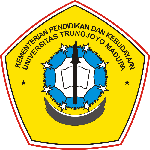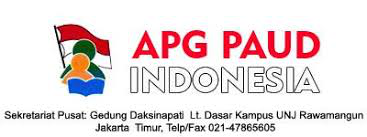Pengaruh Kedekatan Emosional Ayah terhadap Pembentukan Kecakapan Sosial Anak Usia 5-6 Tahun
Abstract
Tujuan penelitian ini adalah menganalisis pengaruh kedekatan emosional ayah terhadap pembentukan kecakapan sosial anak berusia 5-6 tahun. Populasi penelitian mencakup seluruh anak berusia 5-6 tahun kelompok B di TK Islam Al Azhar 50 Bengkulu berjumlah 50 anak, dengan sampel penelitian sebanyak 47 anak melalui teknik total sampling. Penelitian menggunakan metode kuantitatif dengan desain korelasional. Subjek utama penelitian adalah anak-anak berusia 5-6 tahun, namun proses pengumpulan data melibatkan ayah. Instrumen kedekatan emosional (21 butir) yang mengukur dimensi kepercayaan, komunikasi, dan keterasingan, serta guru sebagai pengamat kecakapan sosial anak (20 butir) yang menilai aspek empati, komunikasi, kolaborasi, dan resolusi masalah. Data dianalisis menggunakan uji Mann Whitney U melalui program SPSS versi 16.0. Hasil analisis menunjukkan nilai Asymp. Sig. (2-tailed) = 0,000, yang berada di bawah ambang signifikansi 0,05. Berdasarkan temuan tersebut dikonfirmasi bahwa terdapat perbedaan yang bermakna dalam kecakapan sosial antara anak-anak dengan kedekatan emosional ayah tinggi dan rendah, yang mengindikasikan pengaruh kedekatan emosional ayah terhadap pembentukan kecakapan sosial anak berusia 5-6 tahun. Penelitian lanjutan disarankan menggunakan desain longitudinal dengan sampel yang lebih luas dan mengintegrasikan variabel kontrol seperti pola pengasuhan ibu dan status sosial ekonomi keluarga.
Keywords
Full Text:
PDFReferences
Bowlby, J. (1969). Attachment and loss: Vol. 1. Attachment. Basic Books.
Bowlby, J. (1973). Attachment and loss: Vol. 2. Separation: Anxiety and anger. Basic Books.
BPS (Badan Pusat Statistik). (2019). Survei sosial ekonomi nasional (Susenas) 2019. Badan Pusat Statistik.
Denham, S. A. (2006). Social-emotional competence as support for school readiness: What is it and how do we assess it? Early Education and Development, 17(1), 57-89. https://doi.org/10.1207/s15566935eed1701_4
Denham, S. A., Blair, K. A., DeMulder, E., Levitas, J., Sawyer, K., Auerbach‐Major, S., & Queenan, P. (2003). Preschool emotional competence: Pathway to social competence? Child Development, 74(1), 238-256. https://doi.org/10.1111/1467-8624.00533
Dumont, C., & Paquette, D. (2013). What about the child's tie to the father? A new insight into fathering, father–child attachment, children's socio-emotional development and the activation relationship theory. Early Child Development and Care, 183(3-4), 430-446. https://doi.org/10.1080/03004430.2012.711595
Erikson, E. H. (1963). Childhood and society (2nd ed.). W. W. Norton & Company.
Flouri, E., & Buchanan, A. (2004). Early father's and mother's involvement and child's later educational outcomes. British Journal of Educational Psychology, 74(2), 141-153. https://doi.org/10.1348/000709904773839806
Goleman, D. (2005). Emotional intelligence: Why it can matter more than IQ. Bantam Books.
Gresham, F. M., & Elliott, S. N. (1990). Social skills rating system: Manual. American Guidance Service.
Grossmann, K., Grossmann, K. E., Fremmer-Bombik, E., Kindler, H., Scheuerer-Englisch, H., & Zimmermann, P. (2002). The uniqueness of the child–father attachment relationship: Fathers' sensitive and challenging play as a pivotal variable in a 16‐year longitudinal study. Social Development, 11(3), 301-337. https://doi.org/10.1111/1467-9507.00202
Ladd, G. W. (2005). Children's peer relations and social competence: A century of progress. Yale University Press.
Lailah Sari, I., Asmawati, L., & Rosidah, L. (2020). Hubungan kelekatan orangtua dengan kepercayaan diri anak usia 4-5 tahun di TK se-kecamatan Sindang Jaya Kabupaten Tangerang-Banten. JPP PAUD FKIP Untirta, 7(1), 23-35.
Lamb, M. E. (2010). The role of the father in child development (5th ed.). John Wiley & Sons.
Mascaro, J. S., Hackett, P. D., & Rilling, J. K. (2013). Testicular volume is inversely correlated with nurturing-related brain activity in human fathers. Proceedings of the National Academy of Sciences, 110(39), 15746-15751. https://doi.org/10.1073/pnas.1305579110.
McLanahan, S., Tach, L., & Schneider, D. (2013). The causal effects of father absence. Annual Review of Sociology, 39, 399-427. https://doi.org/10.1146/annurev-soc-071312-145704.
Paquette, D. (2004). Theorizing the father-child relationship: Mechanisms and developmental outcomes. Human Development, 47(4), 193-219. https://doi.org/10.1159/000078723.
Pianta, R. C. (1992). The parent-child relationship scale. Journal of School Psychology, 30(3), 225-237. https://doi.org/10.1016/0022-4405(92)90001-Q.
Rohmalina, R., Lestari, R. H., & Alam, S. K. (2019). Analisis keterlibatan ayah dalam mengembangkan perkembangan sosial emosional anak usia dini. Golden Age: Jurnal Pendidikan Anak Usia Dini, 3(1), 1-8.
Rose-Krasnor, L. (1997). The nature of social competence: A theoretical review. Social Development, 6(1), 111-135. https://doi.org/10.1111/j.1467-9507.1997.tb00097.x
Rufiati, A. (2024). Pengaruh secure attachment antara ayah dan anak terhadap kecerdasan emosional pada anak usia 4-5 tahun. Jurnal Lentera Anak, 5(1), 71-82.
Sarkadi, A., Kristiansson, R., Oberklaid, F., & Bremberg, S. (2008). Fathers' involvement and children's developmental outcomes: A systematic review of longitudinal studies. Acta Paediatrica, 97(2), 153-158. https://doi.org/10.1111/j.1651-2227.2007.00572.x.
Sugiyono. (2013). Metodologi penelitian kuantitatif, kualitatif dan R & D. Alfabeta.
Van IJzendoorn, M. H., & De Wolff, M. S. (1997). In search of the absent father—meta-analyses of infant-father attachment: A rejoinder to our discussants. Child Development, 68(4), 604-609. https://doi.org/10.1111/j.1467-8624.1997.tb04223.x
Verschueren, K., & Marcoen, A. (1999). Representation of self and socioemotional competence in kindergarteners: Differential and combined effects of attachment to mother and to father. Child Development, 70(1), 183-201. https://doi.org/10.1111/1467-8624.00014.
Vygotsky, L. S. (1978). Mind in society: The development of higher psychological processes. Harvard University Press.
DOI: https://doi.org/10.21107/pgpaudtrunojoyo.v12i2.31180
Refbacks
- There are currently no refbacks.
Copyright (c) 2025 Rekha Fiona Amalia, Delrafi D, Nesna Agustriana, Didik Suryadi, Melia Eka Daryati

This work is licensed under a Creative Commons Attribution 4.0 International License.
Diterbitkan oleh:

Program Studi Pendidikan Guru Pendidikan Anak Usia Dini, Fakultas Ilmu Pendidikan
Universitas Trunojoyo Madura.
Jl. Raya Telang PO BOX 2 Kamal, Bangkalan, Jawa Timur 69162
Telp. (031)3014239/ Fax. (031)3011506









